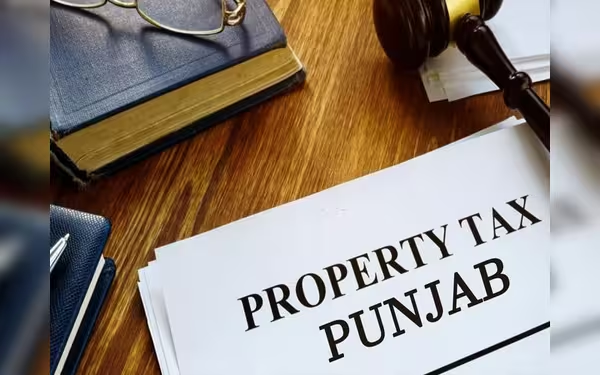Saturday, November 16, 2024 07:58 PM
Rawalpindi Property Tax Increase Under Consideration
- Rawalpindi plans to increase property tax rates.
- New tax rates effective for financial year 2024-25.
- Residents urged to prepare for potential tax changes.
 Image Credits: tribune.com.pk
Image Credits: tribune.com.pkRawalpindi is considering a property tax increase for 2024-25, impacting homeowners and businesses. Stay informed about potential changes.
In a significant move that could impact property owners across the region, Rawalpindi is considering an increase in property tax rates. This decision comes in light of the recent approval of revised property tax regulations by the Department of Excise, Taxation, and Narcotics Control. The new tax rates are set to be implemented for the financial year 2024-25, marking a pivotal change in the local taxation landscape.
The deputy commissioner has already taken steps to inform the public by issuing updated DC rate lists for both residential and commercial properties. This means that homeowners and business operators in Rawalpindi will need to prepare for potential changes in their tax obligations. The adjustments in tax rates are aimed at generating additional revenue for the local government, which is essential for funding various public services and infrastructure projects.
Property taxes are a crucial source of income for local governments, and they play a vital role in maintaining public services such as education, healthcare, and transportation. As the city continues to grow, the demand for these services increases, necessitating a review and adjustment of tax rates. The revised regulations are expected to reflect the current market conditions and property values, ensuring that the tax system remains fair and equitable.
For property owners, this news may come as a surprise, and it is important to understand how these changes could affect their finances. While an increase in property tax can be burdensome, it is also a reminder of the importance of contributing to the community's development. Homeowners and business owners are encouraged to stay informed about the new rates and to plan accordingly.
As Rawalpindi mulls over the potential increase in property tax, it is essential for residents to engage with the process and understand the implications of these changes. By staying informed and proactive, property owners can better navigate the evolving landscape of local taxation. Ultimately, a well-structured tax system can lead to improved public services and a better quality of life for all residents.













